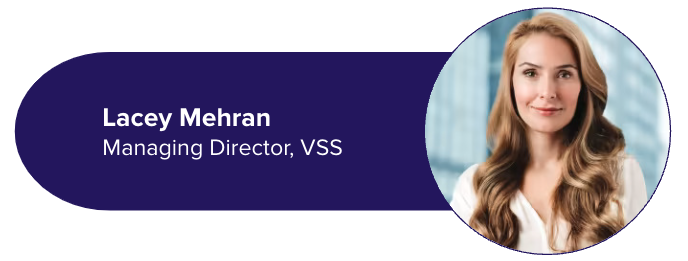Private debt continues to establish itself as a significant player in today’s financial landscape, experiencing robust growth as an asset class. The industry, worth $1.5 trillion, has experienced a compound annual growth rate (CAGR) of approximately 10% in the past decade. This growth trajectory is expected to accelerate, considering the current macroeconomic landscape, with the combination of a floating-rate structure and market-based pricing for private debt offering the potential for enhanced risk-adjusted returns in response to the rise in interest rates.
Preqin’s most recent quarterly update reveals compelling statistics for the second quarter of 2023. During this period, $71 billion was raised with the lion’s share of these fresh investments flowing into direct lending ($42 billion) with mezzanine debt also enduring ($18 billion) during the second quarter.
The first private debt fund we partnered with was VSS Structured Capital, a leading name in the industry, with the last three funds being ranked #1 in the Preqin Mezzanine Category by Net IRR, and Pitchbook naming VSS’s flagship fund family, the top-rated Credit family across all types.
Given the significant interest Gridline members have expressed in the asset class, we’re excited to announce the upcoming launch of our partnership with a leading direct lending firm that has originated over $150B in loans across a 25-year history. The firm has a significant track record of generating consistent net returns and current income while maintaining low defaults and credit losses.
This is an opportune moment to enter the private credit markets as risk-free rates are at their highest levels for a generation and credit spreads – the amount investors are compensated above risk-free rates for extending risky credit – are at or above their long-term averages.
-Logan Henderson, Founder and CEO
To view and download full details of the funds on our platform and in future emails like these, visit app.gridline.co/signup and answer a few quick questions that allow us to verify your identity and learn about your allocation strategy. There is no cost or commitment to create an account on Gridline.
Join us on Thursday, August 31st at 1:00 pm ET. We’ll be discussing how you can evolve your portfolio to include diverse asset classes and under-the-radar managers through simple-to-execute strategies. During the session, you’ll hear about:
We hope you’ll join us, but if you can’t attend live, register and we’ll share the recording with you after the session.

With $3.7 trillion in dry powder, private equity firms are seizing the chance to acquire assets at discounted prices, setting themselves up for substantial gains. Read more.
The Earth has been witnessing unprecedented climate events, exceeding the boundaries of what was once considered normal. We just experienced the warmest month ever recorded on Earth, with July 3rd marking the hottest day in recorded history. The world’s oceans are alarmingly warm, causing catastrophic bleaching and death of coral reefs, particularly around the Florida Keys. Even in the dead of winter, Antarctic sea ice levels are plummeting, reaching historic monthly lows. Wildfires have been ravaging across continents, darkening skies in North America, Europe, and North Africa.
These events emphasize the urgent need for comprehensive and innovative solutions, and we are shifting from scientific consensus into significant government policy. Recent legislative actions, such as the Inflation Reduction Act, CHIPS Act, and Infrastructure Investment and Jobs Act, have allocated over $500 billion to US climate spending over the next decade.
An increase in spending won’t solve the problem by itself and success requires meaningful partnerships between the public and private sectors. We need smart individuals responsible for managing and allocating capital, and as part of that, we’re excited to announce our latest investment opportunity is focused on solving this problem.
The landscape of climate investing has witnessed a transformation in recent years, presenting a compelling combination of contributing to the fight against climate change while generating returns for investors. The companies they invest in are not only disruptive but also strategically positioned to make a meaningful impact through innovative solutions.
The climate crisis is upon us, and it is vital for us to act swiftly and decisively. As governments and entrepreneurs increasingly tackle the complex problems arising from climate change, we are excited to partner with forward-thinking individuals toward a more sustainable future.
-Logan Henderson, Founder and CEO

By integrating technology and transparency, Gridline enhances operational efficiency, lowers the barrier to entry, and improves investor confidence. Read more.

Savvy investors know that to capitalize on the growth potential of AI, they need to have access to private market investment opportunities that have the potential to yield significant returns. Read more.
This week Blackstone released its latest quarterly earnings report with a notable stat – They became the first private equity manager to hit $1 trillion in assets. While Blackstone has moved beyond private equity to include real estate (now its largest division and the nation’s biggest landlord), hedge funds, credit and infrastructure investing, and more, it is a watershed moment.
Public equities, bonds, and cash are considered the three main asset classes, with everything else being considered an “alternative” asset class. While there are some unique characteristics that define alternatives, such as structure, liquidity, and risk, the size of the market relative to the traditional core asset classes is a factor.
The global public equity and bond markets are north of $100 trillion, while there are roughly $13 trillion in alternatives. Investors’ appetite for alternatives only continues to increase, with Preqin forecasting assets reaching $23 trillion by 2026. The uncorrelated return profiles and active risk management offered by alternative fund managers in down markets are a valued commodity, and Blackstone achieving $1 trillion in assets proves the thesis.
Alternative assets have historically been highly concentrated amongst institutional investors, with individuals accounting for just 16% of alternative assets under management globally but controlling roughly 50% of global wealth.
Gridline was started to solve a simple problem – the alternative investment market is broken. Investors want to increase their allocation to alternative assets, and private fund managers are seeking to capture non-institutional capital. The current model is antiquated and must evolve into a robust digital platform that can efficiently handle the large, growing demand for alternative assets.
We are in the early stages of a long-term growth cycle, solving the challenges that have historically throttled the ecosystem by building the digital infrastructure to increase transparency, enhance operational efficiencies, and lower barriers to entry.
-Logan Henderson, Founder and CEO

In private markets, the disparity in information can lead to lucrative investment opportunities for savvy investors. Read more.
As we come back from celebrating the 4th of July – a salute to independence, hotdog eating contests, and fireworks – and enter the second half of 2023, one of the key tenets that we should be celebrating is American Ingenuity. While there are many unknowns in how the rest of the year will play out, we do know that a focus on harnessing innovation, creativity, and problem-solving will play a pivotal role in shaping the world we live in.
America has a history of embracing new ideas, and this entrepreneurial spirit has led to countless inventions, technological advancements, and groundbreaking discoveries. There are a few notable examples that are currently most exciting to me and provide limitless possibilities:
We see innovation coming to life in the portfolio companies of some of our current funds, specifically Greycroft portfolio companies, Prezent and Hopscotch, in AI and healthcare respectively, Warburg Pincus’s investment in climate company Eco Material Technologies, and Marlinspike’s investment in Voyager Space.
From the founding of the nation to today, this ingenuity continues to drive progress, resilience, and innovation across all aspects of society. There are many things we can do to support American Ingenuity, from investing in next-gen companies, supporting policies that promote innovation, starting businesses, or learning and exploring new ideas. No matter what happens, this spirit will undoubtedly guide us towards a brighter future.
-Logan Henderson, Founder and CEO

The private markets have already witnessed the emergence of eight new AI unicorns, including OpenAI, which boasts a valuation of $29 billion. Traditional indices like the S&P500 often fail to capture such explosive growth. Read more.

Private market investments provide unique opportunities for investors to directly impact the growth trajectory of their investments, potentially leading to higher returns. Read more.
When making an investment decision, there are numerous factors to consider, but one of the most important is risk aversion. Investors seek to maximize their expected return for a given level of variance (risk) in their portfolio. It is not a fixed characteristic and can change over time depending on an investor’s individual circumstances and goals. It’s also important to note that investors don’t just care about variance — ie, they don’t just care about the ups and downs of their portfolio — they care about when the variance shows up.
Many people will focus on risk aversion through the lens of investment amount. Committing smaller investment amounts, even to riskier assets, feels less risky. When most investors start to explore private markets, they begin making angel investments which are typically smaller investments into early-stage operating businesses. When losses occur (the business fails), they appear less severe, given the timing and the fact that failures happen over an extended period of time.
But the returns of angel investors are highly dependent on their own actions, and those who dedicate more time to due diligence, possess industry experience, and provide mentorship to the invested companies tend to achieve higher returns.
But is that effort worth the investment amount?
Many sharp observers have noted that Venture Capital returns follow a power law distribution with a small number of wildly successful investments responsible for most of the returns. When a notable Venture LP looked into this effect across the managers they allocated to between 1985 and 2014, they found that 6% of venture deals returned more than 10 times the money invested in them. A well-diversified portfolio across a large number of investments is more likely to find a few high-potential companies, and the best way to accomplish that mix is through fund commitments.
In venture investing, it’s a mix of quantity and quality. While investing smaller amounts may seem less risky, a lack of due diligence and diversification can undermine this strategy and ultimately contradict the risk-averse investor’s objectives.
-Logan Henderson, Founder and CEO

Join us on Thursday, June 29th at 11 am ET for an interactive Meet the Manager session with Lacey Mehran, Managing Director at VSS to discuss structured credit and how firms can capitalize on the current market environment to drive returns for investors.
VSS is a private investment firm that invests in the Healthcare, Business Services and Education industries. Since 1987, VSS has partnered with lower middle-market companies working closely with management teams, providing flexible capital solutions to drive growth.
This webinar is open to Gridline Members. If you would like to join us, please complete the process to sign up for an account and we will send you your personal link to join the webinar.

An unprecedented transition of wealth is on the horizon. With the youngest of the 73 million baby boomers reaching 60… Read more.

Private markets have grown by 170% in the past decade alone. They are now a bedrock asset class for investors seeking higher returns and less correlation with traditional asset classes. Read more.
Kim Lew, the CEO of Columbia Investment Management Company, recently participated in a fireside chat and was very bullish on the current private market environment. Her perspective is one we share and many investors have echoed – “The investments made in this moment are likely to be huge successes six years from now… You’re not selling them in the next couple of years. You’re selling them six years from now when the market is bound to be better than it is at the moment.” Investing in private markets is a long-game and thoughtful timing can yield significant results.
But one of the more interesting perspectives was the focus on emerging vs established managers, specifically that established managers “have bad portfolios that they’ve got to manage through. Emerging managers do not.”
The idea is a classic case of the innovator’s dilemma, a concept that describes how established companies can fail when new technologies emerge due to their focus on meeting the needs of their existing customers and business model. This creates the opportunity for new entrants to take market share away from the established players.
Established fund managers already spend a significant amount of time managing the portfolio (board work, recruiting, budgeting and forecasting, etc.), allocating capital to the portfolio in follow-on rounds, and exit planning. All of these efforts are more complex and time consuming in the complicated environment we’re in today, and established managers need to find a balance between preserving their legacy portfolios and finding new investments.
Conversely, emerging managers, unburdened by the complexities of legacy portfolios, possess a distinct advantage in that they can focus simply on what lies ahead.
-Logan Henderson, Founder and CEO

Accessing the potential of emerging markets through PE investments presents an opportunity for higher returns and diversification. Read more.

While small-cap stocks provide some diversification and return potential compared to large-cap stocks, they pale compared to PE. Read more.
Venture investors are increasingly interested in defense technology, and recent geopolitical instability has showcased technologies with dual defense and commercial uses.
According to PitchBook’s recently released research piece Vertical Snapshot: Defense Tech, investments in the sector reached $135.3 billion across 4,744 deals from 2016 to 2022, and are expected to surge to $184.7 billion by 2027.
The government’s traditionally lengthy procurement process has made it difficult for startups to sell to the government, but there is growing recognition of the need for streamlining this process, as evidenced by changes to procurement rules embedded in the 2022 National Defense Authorization Act that make it easier for new firms to win government contracts.
Startups that can serve both commercial and government use-cases have grown, evidenced by the rapid success of names like SpaceX, Palantir and Anduril.
Investors understand the importance of developing technology to support national and global prosperity, and we believe it will continue to be a key area of focus moving forward.
Let us know what you think – please don’t hesitate to reach out.
– The Team at Gridline
Goldman Sachs recently released their 2023 Family Office Investment Insights, with insights from key decision makers at 166 global family offices. A few points of note:
We see this trend first-hand with a growing number of family offices leveraging Gridline to deploy capital. Although many have built internal teams, a significant majority — 61% for investing and 53% for operations — employ less than 5 dedicated employees for each function.
When thinking about the time spent sourcing and conducting diligence along with the post-investment management process (treasury and performance management, portfolio monitoring, tax reporting, etc.), that is a lean organization. At Gridline, we spend 100% of our time on these activities with 100% focus on alternatives.
Family offices are partnering with us to build diversified portfolios that can generate attractive returns and provide exposure to underrepresented sectors / strategies, all while reducing the managerial and cost burden of private investing. High quality products, experienced team, seamless experience… That’s Gridline.
-Logan Henderson, Founder and CEO

Private markets have grown $4 trillion in the past decade and are now a bedrock strategy for investors seeking higher returns and less correlation with traditional asset classes. Read more.

The recent banking crisis makes it clear that when one door closes, another opens for private market investors. Read more.
Join us on Thursday, May 25th at 11 am ET to learn why private credit is growing faster than any other alternative asset class and why it may be the right addition to your portfolio.
Head of Client Experience, Jana Ferguson, will be joined by Gridline Investment team member, Charles Patton, to talk about:
This webinar is open to Gridline Members. If you would like to join us, please complete the process to sign up for an account and we will send you your personal link to join the webinar.
Security is a fundamental aspect of human existence, and two of the most critical aspects of security are food and defense. While they may seem unrelated, they both require concerted efforts and innovative solutions to thrive.
For food, the developing world’s middle class is expected to keep improving their diets by consuming more protein, which could lead to a surge in demand for grains worldwide. Urban development continues to encroach upon the world’s finite farmland resources leading to the loss of arable land. Protecting arable land and innovating on the ground we have remaining will be crucial in ensuring food security.
As the population continues to grow, the value of farmland is likely to increase, and investing in productive acreage is a way to support the future of agriculture while also generating returns on investment.
For defense, the US has one of the largest defense budgets in the world, and the National Defense Authorization Act is one of the few budgets in the US where we still have bipartisan approval, even during times of economic uncertainty. The US has a strong tradition of innovation in the defense sector, and many of the technologies developed for military applications have had significant civilian benefits as well.
Investing in defense companies can therefore provide exposure to cutting-edge technologies that may have applications in a range of industries across civil and military complexes.
Security is a multifaceted concept and our most recent product launches focus on these two critical aspects, funding innovation for a safer and more prosperous future, while creating opportunities for investors.
-Logan Henderson, Founder and CEO

Despite the significant challenges in the banking industry, PE showed remarkable resilience and is well-positioned to continue its growth trajectory. Read more.

Firms that embrace sustainable practices tend to be more profitable and have better risk management processes. Read more.
Fred Wilson is a prominent venture capitalist who co-founded Union Square Ventures with notable investments, including Twitter, Etsy, and Zynga. Wilson’s approach to investing is “thesis-driven,” focusing on companies challenging the status quo and broadening access to knowledge, capital, and well-being.
He is also known as a writer and thought leader, using his blog, AVC, to share his thoughts on technology, investing, and market trends. His writings have been instrumental to me personally, as well as to the underlying thesis on why we started Gridline. I want to share a few posts from Fred that closely align with what we’ve built and what we solve for our members:
We share a common belief that technology can fundamentally transform industries, create better products, and benefit more people. That was our goal with launching Gridline, and we believe we have and will continue to change how people discover, deploy and manage a better portfolio of alternative investments. But we’re not done and would love to hear your feedback on what we can do to improve your experience.
-Logan Henderson, Founder and CEO

If you’re looking to invest in VC, it’s important to consider persistence. The best funds have a strong track record of delivering superior returns and are more likely to do so in the future.

Investment funds offer meaningful tax advantages, alongside attractive risk-adjusted returns. Investors are able to benefit from long-term capital gains tax rates far lower than ordinary income tax rates.
Join the Gridline Investment Team on Thursday, April 27th, at 11 am ET as they discuss how investing in Gridline Thematic Portfolios can help you optimize your asset allocations in the most efficient manner possible. During the session you’ll hear about:
This webinar is open to Gridline Members. If you would like to join us, please complete the process to sign up for access and we will send you your personal link to join the webinar.
Two of the most common concerns when evaluating alternatives are illiquidity (the investments are not publicly traded) and long duration (typical hold period is 7-10 years). These are both valid concerns when making an investment decision and evaluating personal cash-flow needs or accessing capital in the event of an unforeseen life event.
That said, there is a simple and often overlooked solution to realize the benefits of alternatives while preserving the flexibility of having cash on hand: investing from your retirement accounts.
Many people consider their retirement accounts an untouchable pool of capital they won’t rely on for many years (you must be 59.5 to withdraw from an IRA without penalty), allowing them to take a long-term perspective that aligns with the long-term value of alternative investments. These two strategies provide numerous benefits, including the potential for compound returns, the ability to ride out market volatility, tax benefits, and future income security.
The best way to invest in alternatives via retirement accounts is a self-directed IRA, which offers the same tax advantages as conventional IRAs but allows you to invest in a variety of alternative assets, including venture capital, private equity, private credit, and real assets.
Our goal at Gridline is to make this process seamless, and we have established partnerships with Equity Trust and Millennium Trust that allow you to invest in all of our Thematic Portfolios.
We’re excited to announce that next month we will roll out a new platform feature that allows you to open, fund (roll over an existing IRA or 401k account), and invest from a retirement account all without leaving the Gridline platform.
No more paperwork, wet signatures, or mailing physical checks.
We’re excited to provide our members the ability to capitalize on the benefits of alternatives with their long-term retirement accounts, and if you would like to chat with our team and get the process started, please do not hesitate to reach out.
-Logan Henderson, Founder and CEO

A closer examination of the industry reveals an optimistic reality, with significant growth in retail investment, exceptional PE performance, and rapid expansion of sectors like private debt. Read more.

The loss of “easy money” increases risk aversion, leading investors to look for value beyond the short-term turbulence. Read more.
Bill Gates is one of the largest private land owners in the US, with about 270,000 acres of farmland spread across 18 states. When asked why he owns so much farmland, he’s stated “There isn’t some grand scheme involved – in fact all these decisions are made by a professional investment team.”
Why would one of the world’s most preeminent tech founders have such a substantial allocation to farmland? Likely because farmland as an investment offers:
Just a seed we wanted to plant with you. We’ve got a big announcement coming soon.
-The Team at Gridline